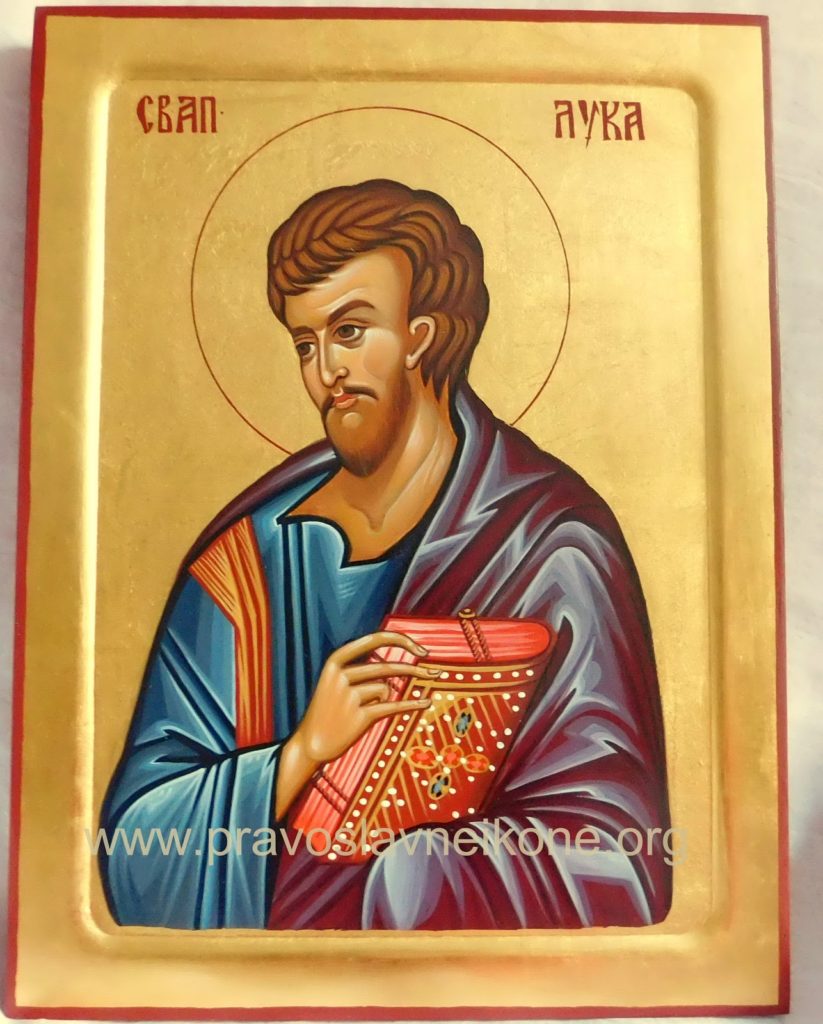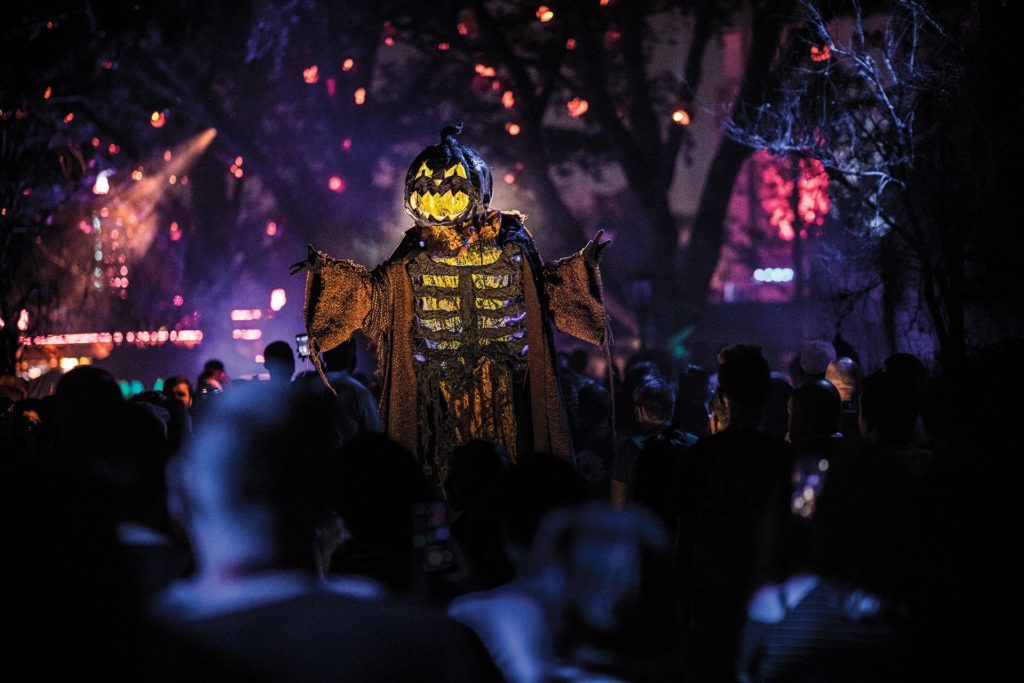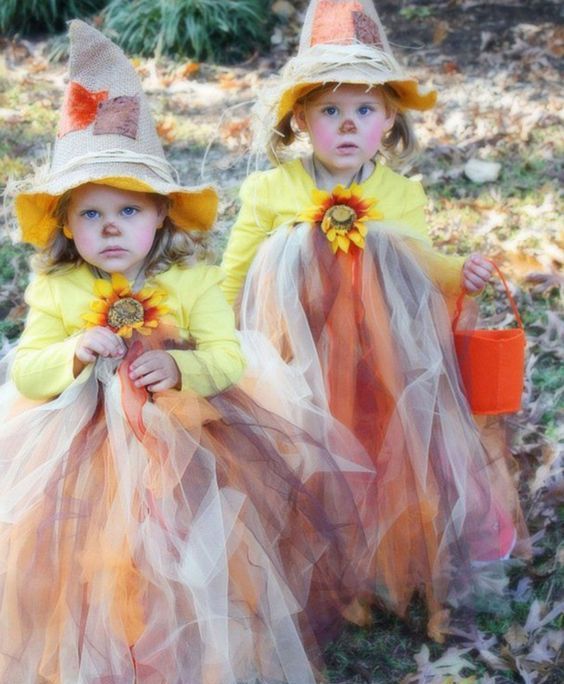October 31st is the day dedicated to Saint Apostle Luke and Saint Peter of Cetinje. On this day we celebrate these two Saints NOT witches and angels of dark.


Most of us have either recently become Orthodox or have recently become aware of our Orthodoxy, so we need to carefully examine every aspect of our engagement in the world – our active participation, in festivals, various associations – to make sure our participation there is in line with our Holy Orthodox Faith. I know that this difficult task can also produce some pain, when at some point we realize that we cannot participate in some popular organizations and activities.
For a while now everything in the outside world is reminding us that Halloween is near: homes in our communities are decorated with web nets, at school our children are busy painting pumpkins, cutting and pasting bats, ghosts, and witches, and planning the ideal costume in which to go trick-or- treating. Most of our schools, local community organizations, and entertainment on television, radio, and press will share in and capitalize upon the festival of Halloween. Many of us will participate in this festival by going to costume parties, or by taking our children trick-or-treating in our neighborhood after dark on October 31st. Most of us will take part in the Halloween festivities believing that it has no deeper meaning than fun and excitement for the children.
But, Orthodox Christians cannot participate in this event on any level. A simple reason – Faithfulness to God and the Holy Orthodox Faith. Halloween has its roots in paganism, and continues as a form of idolatry until the very worship of Satan, the angel of death. As we know, the very foundation of our holy Church is built on the blood of martyrs who refused, despite painful sanctions, to worship, respect, or prostrate, to worship in any way the idols that are the angels of Satan. Because of the faithfulness, obedience, and sacrifice of the Holy Martyrs, God has abundantly poured out grace on His Holy Church, which has more and more members every day. Persecution did not stop the spread of our faith.

Differing from worldly values, such as humility, fidelity and obedience to God, as well as a very strong Orthodox Christian desire for life in Christ who gave them true spiritual peace, love and joy, and thus participation in the miraculous works of His and the Holy Spirit. . Thus, the Holy Church calls us to devotion and fidelity as well as our turning from untruth to Truth and eternal life.
In order to get away from the pagan Halloween festival as far as possible, we must understand the spiritual danger and the history of this anti-Christian holiday.
The feast of Halloween began in pre-Christian times among the Celtic peoples of Britain, Ireland and Northern France. These pagan peoples believed that physical life was born from death. Therefore, they celebrated the beginning of the “new year” in the fall, on the eve of October 31st and into the day of November 1st, when, as they believed the season of cold, darkness, decay and death began. Instructed by their priests, the Druids, the people extinguished all hearth fires and lights and darkness prevailed. According to pagan Celtic tradition, the souls of the dead had entered into the world of darkness, decay and death and made total communion with Samhain, the Lord of death, who could be appeased and cajoled by burnt offerings to allow the souls of the dead to return home for a festal visit on this day.
The belief led to the ritual practice of wandering about in the dark dressed in costumes indicating witches, hobgoblins, fairies and demons. The living entered into fellowship and communion with the dead by this ritual act of imitation, through costume and the wandering about in the darkness. They also believed that the souls of the dead bore the affliction of great hunger on this festal visit. This belief brought about the practice of begging as another ritual imitation of the activities of the souls of the dead on their festal visit. The implication was that that any souls of the dead and their imitators who are not appeased with “treats”, i.e. offerings, will provoke the wrath of Samhain, whose angels and servants could retaliate through a system of “tricks”, or curses

In the strictly Orthodox early Celtic Church, the Holy Fathers tried to counteract this pagan new year festival by establishing the feast of All Saints on that same day (in the East, this feast is celebrated on another day). The night before the feast (on “All Hallows Eve”), a vigil service was held and a morning celebration of the Eucharist. This custom created the term Halloween. But the remaining pagan and therefore anti-Christian people reacted to the Church’s attempt to supplant their festival by increased fervor on this evening, so that the night before the Christian feast of All Saints became a night of sorcery, witchhcraft and other occult practices, many of which involved desecration and mockery of Christian practices and beliefs. Costumes of skeletons, for example, developed as a mockery of the Church’s reverence for holy relics. Holy things were stolen and used in sacrilegious rituals. The practice of begging became a system of persecution of Christians who refused to take part in these festivities. And so the Church’s attempt to counteract this unholy festival failed.
This is just a brief explanation of the history and meaning of the festival of Halloween. It is clear that we, as Orthodox Christians, cannot participate in this event at any level (even if we only label it as “fun”), and that our involvement in it is an idolatrous betrayal of our God and our Holy Faith. For if we imitate the dead by dressing up or wandering about in the dark, or by begging with them, then we have willfully sought fellowship with the dead, whose Lord is not a Celtic Samhain, but satan, the evil one, who stands against God. Further, if we submit to the dialogue of “trick or treat”, our offering does not go to innocent children, but rather to satan himself. Let us remember our ancestors, the Holy Christian Martyrs of the early Church, as well as our Serbian New Martyrs, who refused, despite painful penalties and horrendous persecution, to worship, venerate or pay obeisance in any way to idols who are angels of satan. The foundation of our Holy Church is built upon their very blood.

In today’s world of spiritual apathy and listlessness, which are the roots of atheism and turning away from God, one is urged to disregard the spiritual roots and origins of secular practices when their outward forms seem ordinary, entertaining and harmless. The dogma of atheism underlies many of these practices, denying the existence of both God and satan. Our Holy Church, through Jesus Christ, teaches that God alone stands in judgment over everything we do and believe and that our actions are either for God or against God. No one can serve two masters. Therefore, let us not, as the pagan Celts did, put out our hearth fires and wander about in the dark imitating dead souls. Let us light vigil lamps in front of our icons, and together with our families, ask God to grant us faith and courage to preserve as Orthodox Christians in these very difficult times, and to deliver us from the evil one.


The evening when the ghosties and ghoulies come out is the Eve of October19/November 1, St. John of Kronstadt. We have Vespers for St. John of Kronstadt. Or you could do St. John of Rila.